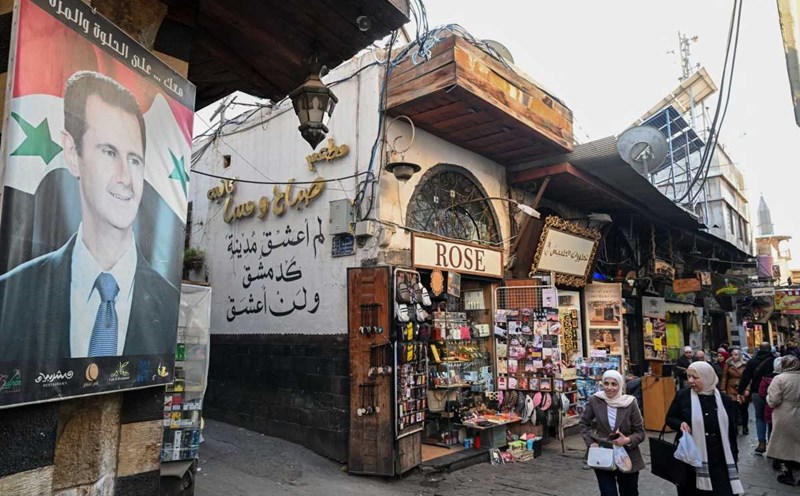While many in Syria celebrated the end of Bashar al-Assad’s regime, rumors swirled about his whereabouts. After a day of intrigue, the mystery was solved when Russian state media reported that he had landed in Moscow.
"Mr. Assad and his family have arrived in Moscow. For humanitarian reasons, Russia has granted them asylum," TASS and Ria Novosti news agencies quoted a Kremlin source as saying on December 8.
Since the uprising began and rebels quickly advanced into the country, Mr. Assad has kept a low profile.
After meeting Iran's foreign minister last weekend, Mr Assad pledged to fight "terrorist organisations" but made no further comments as rebels seized major cities.
On December 7, as rebels surrounded the capital Damascus, a source told CNN that Mr. Assad was nowhere to be seen in the city.
The Syrian presidency initially denied that Mr Assad had left Damascus or gone to another country, saying some foreign media outlets were “spreading rumours and false news”.
After taking over the capital, the rebels said he had fled and were searching for him. Some fighters, along with civilians, began ransacking his official residence.
Amid the rumors, on December 8, the Russian Foreign Ministry issued a statement saying that Mr. Assad had "decided to give up the presidency and leave the country, giving instructions for a peaceful transfer of power."
Before TASS news agency confirmed that Mr Assad had landed in Moscow and been granted asylum, Reuters said it was "highly likely" that Mr Assad had died in a plane crash while leaving Syria.
Reuters wrote, flight tracking website Flightradar24 showed a plane believed to be carrying Mr. Assad leaving the Syrian capital and heading towards the Mediterranean Sea, before turning around and disappearing from radar screens.
Shortly afterwards, Reuters quoted two anonymous "Syrian sources" as saying, "there is a high possibility that Mr. Assad may have died in a plane crash because it is unclear why the plane suddenly turned around and disappeared."
Reuters revised the article on the evening of December 8, removing the part about the plane crash.
In other developments, the leader of the main group behind Syria's armed opposition, Abu Mohammad al-Jolani, called the overthrow of Mr Assad a "victory for the entire Muslim nation" in his first public speech since rebels captured Damascus.

Speaking from the White House, US President Joe Biden said the fall of the Assad regime offers the Syrian people a "historic opportunity to build a better future for their proud country". Mr Biden noted: "This is also a time of risk and uncertainty as we all look to the question of what comes next".
"The US military's Central Command, CENTCOM, along with our regional allies and partners, will continue to conduct operations to degrade IS's operational capabilities even during this period in central Syria," a US official said. CENTCOM announced that it had attacked more than 75 IS targets on December 8.
For its part, an Israeli military spokesman issued an “urgent warning” to residents of five areas in southern Syria. Earlier, Israeli Prime Minister Benjamin Netanyahu ordered the country’s military to occupy a buffer zone on Israel’s border with Syria.











